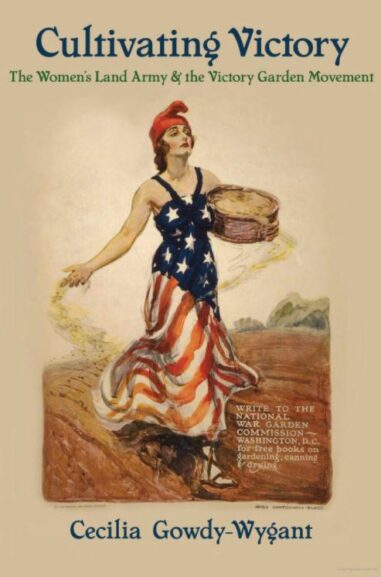During the First and Second World Wars, food shortages reached critical levels in the Allied nations. The situation in England, which relied heavily on imports and faced German naval blockades, was particularly dire. Government campaigns were introduced in both Britain and the United States to recruit individuals to work on rural farms and to raise gardens in urban areas. These recruits were primarily women, who readily volunteered in what came to be known as Women’s Land Armies. Stirred by national propaganda campaigns and a sense of adventure, these women, eager to help in any way possible, worked tirelessly to help their nations grow “victory gardens” to win the war against hunger and fascism. In vacant lots, parks, backyards, between row houses, in flowerboxes, and on farms, groups of primarily urban, middle-class women cultivated vegetables along with a sense of personal pride and achievement.
In Cultivating Victory, Cecilia Gowdy-Wygant presents a compelling study of the sea change brought about in politics, society, and gender roles by these wartime campaigns. As she demonstrates, the seeds of this transformation were sown years before the First World War by women suffragists and international women’s organizations. Gowdy-Wygant profiles the foundational organizations and significant individuals in Britain and America, such as Lady Gertrude Denman and Harriet Stanton Blatch, who directed the Women’s Land Armies and fought to leverage the wartime efforts of women to eventually win voting rights and garner new positions in the workforce and politics.
In her original transnational history, Gowdy-Wygant compares and contrasts the outcomes of war in both nations as seen through changing gender roles and women’s ties to labor, agriculture, the home, and the environment. She sheds new light on the cultural legacies left by the Women’s Land Armies and their major role in shaping national and personal identities.



